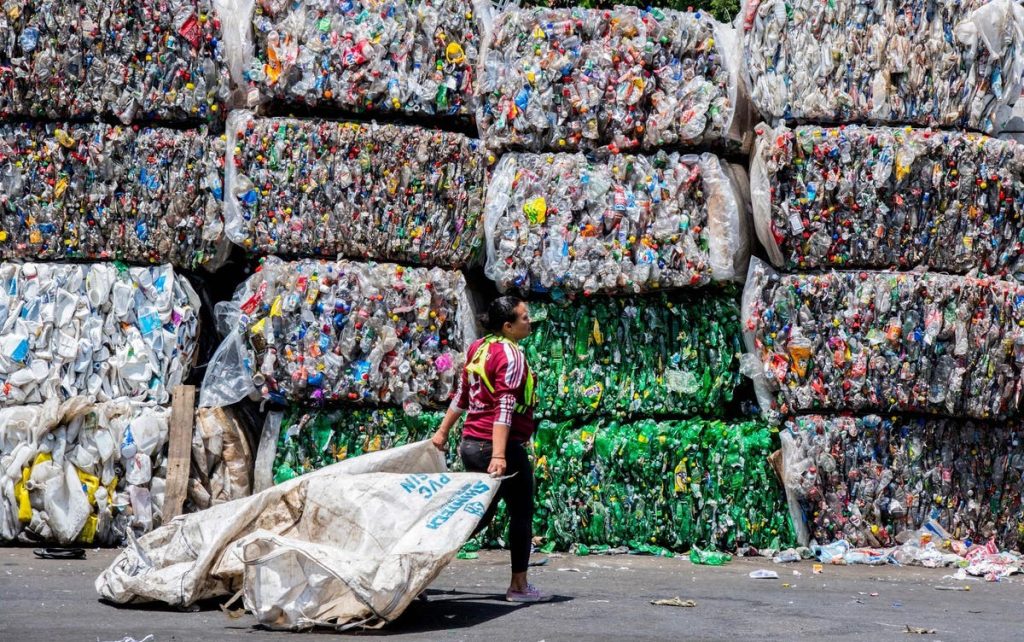The world has reached the annual point in the year when authorities and people can no longer properly manage the plastic waste produced annually, according to a new study.
The report by Swiss-based research consultancy Earth Action warns today (28 July) is the point in the year where the amount of short-life plastic waste being produced annually exceeds the global capacity to manage it effectively.
According to Earth Action, more than 68.5 million tonnes of short-life plastic will be mismanaged around the world and pollute the environment this year.
The study states that while overall plastic waste has been well-managed this year, global production of short-life plastic expected to reach 159 million tonnes in 2023.
This means the international capacity for managing plastics without leakage will no longer meet demand for the rest of the year.
As a result, the report estimates 43% of all plastic waste is projected to be mismanaged at the end of its life – equivalent to more than 68.5 million tonnes of short-life plastics polluting the environment this year alone.
The report also highlights that the plastic waste crisis disproportionately impacts the countries in the Global South.
Countries such as Bangladesh, Ecuador, India and South Africa are some of those in the Global South that have been defined by Earth Action as “waste sponges”, a country that has low consumption of plastic yet a high level of plastic pollution arising from it through plastic imports.
Collectively, the “waste sponge” countries account for 66.86 days out of the total 157 days of plastic overshoot projected to occur in 2023.
Sarah Perreard, co-chief executive of Earth Action, said in an interview that governments and corporations need to accurately and transparently measure their plastic footprints in terms of consumption, waste mismanagement and leakage in the same way many corporations do already.
She added one of the issues in many countries there is no waste infrastructure in place, or that the systems already in place are based on linear economic models.
“We need to have more circular infrastructure models being developed,” she told me.
“That means infrastructure for reuse and repair. Recycling is just a small part of the response and we’re advocating for governments to become involved in the creation of tools to allow current business models to become circular.”
In a statement, the founder and CEO of Earth Action, Julien Boucher said today should be a pivotal moment in the global plastic waste crisis.
‘Without this, the plastic overshoot day date will only be brought forward every year. If we can measure and report our carbon footprints, why can’t we do the same for plastic?’
The WWF’s global initiative lead, John Duncan added in a statement the inequalities inherent in the current plastics system have kept the plastic pollution problem “out-of-sight and out-of-mind for many”.
And he added the social, economic, and ecological burden have been borne by lower income countries and poorer communities.
“While improving global waste management capabilities will help, we need to focus our efforts on upstream reduction and design of the system, which is where the biggest opportunities lie,” added Duncan.
Read the full article here










